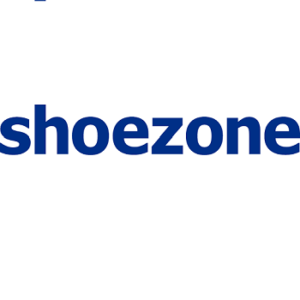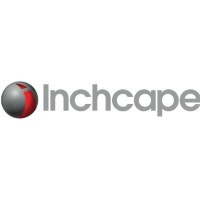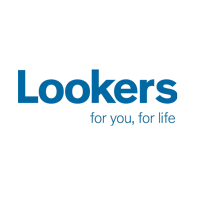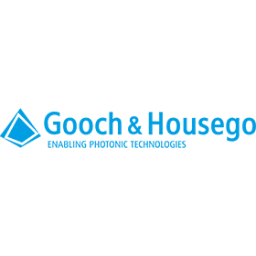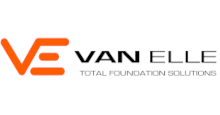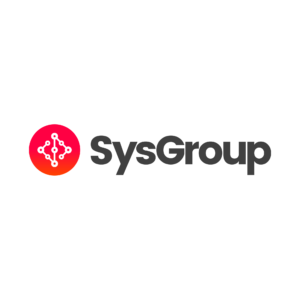Vertu Motors plc (LON:VTU), the UK automotive retailer with a network of 133 sales and aftersales outlets, today announced the following update with regards to the five-month period to 31 January 2020 ahead of its preliminary results for the year ended 29 February 2020.
Robert Forrester, Chief Executive of Vertu Motors said:
“I am pleased to report that the Board expects the trading performance for the Group to be in line with its overall expectations. This result has been achieved through the deployment of discipline, hard work and sector leading systems. Scale will become an increasingly important success factor as the sector evolves and the current pipeline of potential acquisition opportunities is strong, with our robust balance sheet only being deployed after rigorous capital allocation testing.”
Highlights
· The Board expects the Group’s trading performance for the year ended 29 February 2020 to be in line with its overall expectations
· Application of strong margin disciplines delivered continued growth in Group operating profit in the Period
· Strong performance in service continued with like-for-like revenue growth of 5.4% achieved at increased margins
· Growth in like-for-like used vehicle margins and gross profit generation was delivered through strong pricing disciplines; tighter used car supply leading to a rebalancing between volume and margin
· Like-for-like new retail vehicle volumes were 9.4% lower with stable margins
· Strong growth in fleet car sales volumes delivered, significantly outperforming the market
· Commercial vehicle volumes were impacted by new WLTP regulations introduced in September 2019
· Fleet and commercial margins rose in the Period
| Increase (decrease) Period-on-Period | |||
| Total | Like-for-like | SMMT UK Registrations | |
| Group revenues | (2.7%) | (2.1%) | |
| Service revenues1 | +3.9% | +5.4% | |
| Volumes: | |||
| Used retail vehicles | (3.1%) | (2.3%) | – |
| New retail vehicles | (9.9%) | (9.4%) | (5.4%) |
| New Motability vehicles | +1.3% | +1.9% | +5.2% |
| New fleet cars2 | +13.6% | +13.6% | +4.1% |
| New commercial vehicles2 | (9.5%) | (19.7%) | (9.6%) |
1 Includes internal and external revenues
2 Includes agency volumes
Aftersales
In the Period, the Group achieved a 5.4% increase in like-for-like Service revenues and Core Group aftersales margins rose to 46.3% from 44.7%. On 1 March 2019, the Group increased the hourly rates charged on internal work undertaken for the sales departments and this augmented margins. Pricing disciplines, the performance of rigorous vehicle health checks, and the increasing use of video technology to aid sales conversion, contributed to a growth in average invoice values on retail work to record levels.
Overall, aftersales in the Core Group delivered a £2.3m year on year uplift in gross profit in the Period. The increase in internal rates to all sales departments accounted for £1.5m of this improvement.
Used vehicle sales
In the Period, UK used vehicle supply has tightened as the new car market declined so restricting fresh supplies of part exchanges into the wholesale markets. Pricing has therefore increased from the low point of the early summer price correction. The Group seeks to balance volume and margin in order to maximise gross profit and consequently, in light of the market trends, the Group’s like-for-like volume of vehicles sold in the Period fell by 2.3%. Like-for-like gross profit per unit grew 6.7% to £1,229, with strengthening margin percentages returning to more normalised levels compared to the prior year Period.
Core Group gross profit generated from used vehicles sales in the Period consequently grew by £1.6m. This growth was after absorbing an increased cost of used vehicle preparation as previously explained, which augmented service department performance.
New retail car and Motability sales
The UK new vehicle market recorded 2.31 million registrations in the 12 months to 31 December 2019 (SMMT), a decline of 2.4% on 2018 and the third year of decline from the 2016 peak of 2.69 million. Supply-side considerations, such as the impact of a weak pound on the profitability of Manufacturers importing vehicles into the UK and a new regulatory environment with regards to emissions, continued to have an impact. In addition, the Period saw volatility in consumer confidence levels, driven by political and economic uncertainty as the Brexit process unfolded. Media debate and profile around powertrains, emissions and clear air zones also created additional uncertainty impacting the demand side.
SMMT data showed a 5.4% decline in UK private registrations in the Period. This registration data is likely to have included significant pre-registration activity particularly as Manufacturers sought to avoid punitive emissions fines (from a new regime commencing in 2020) through pre-registration of higher emission vehicles prior to 1 January 2020. The Group’s like-for-like volumes of new retail vehicles sold declined by 9.4% in the Period reflecting comparatively high declines in certain volume Manufacturers represented by the Group.
Motability volumes grew 1.9% in the Period on a like-for-like basis, compared to a rise in UK registrations in this channel of 5.2%. The Group’s Motability volumes are more weighted toward volume franchises, which continue to see reduced market share in the UK compared to growth in premium franchises.
The Group increased gross profit per unit on the sale of new vehicles in the Period with margin percentages stable. Like-for-like gross profits from the sale of new retail and Motability vehicles fell £0.4m compared to the prior year Period, driven by the reduction in the volume of vehicles sold.
Fleet & Commercial vehicle sales
The Group continued to outperform the market in fleet cars, growing like-for-like volumes by 13.6%, against a 4.1% growth in the UK fleet market. The Group has invested in the development of its fleet capacity in both the premium and volume markets, which has driven this volume growth and taking of significant market share.
The UK commercial vehicle market in the Period saw disruption arising from the introduction of the Worldwide Harmonised Light Vehicle Test Procedure (WLTP) for vans on 1 September 2019. The Group’s like-for-like sales of new commercial vehicles fell 19.7% compared to the prior year Period, with the SMMT reporting a 9.6% fall in UK registrations in the Period. This loss of market share reflects the weighting of the Group’s commercial vehicle operations to brands which saw greater declines in van registrations compared to the market overall.
Importantly, the Group grew like-for-like gross profit per unit in the Fleet and Commercial channels and consequently Core Group gross profit generation rose £0.9m in the Period.
Operating expenses
Like-for-like operating expenses grew overall in the Period. This increase was principally due to investment in additional marketing to support awareness of the Bristol Street Motors and Macklin Motors brands.
Interest costs
Net finance costs rose £0.7m in the Period compared to the prior year with a slower rate of growth than in the first half of the financial year. The increase relates to new vehicle stocking charges arising on higher levels of new vehicle inventory at higher interest rates. Certain Manufacturers built up higher than usual new vehicle inventory levels as part of Brexit planning.
Portfolio changes
On 15 January 2020 the Group purchased the trade and assets of four substantial Volkswagen leasehold dealerships in Leeds, Huddersfield, Harrogate and Skipton from Goodman Retail Limited, a trading subsidiary of Sytner Group Limited. This acquisition represents further expansion of the Group’s Vertu Volkswagen brand and complements the Group’s existing 12 outlets in Yorkshire. These businesses have been fully integrated into the Group’s financial and operational systems platform. This acquisition is expected to be earnings enhancing for the year to February 2021.
Further on 21 January 2020, the Group acquired the trade and assets of a multi-franchise dealership in Edinburgh representing the Kia, Mitsubishi and Suzuki franchises from the administrators of Leven Cars Group Limited. The business is now fully operational and integrated into the Group. This acquisition is expected to be earnings dilutive in the first full year of ownership by the Group, as the business is turned around.
On 28 February 2020, the Group acquired the trade and assets of a multi-franchise dealership representing Honda and Kia in Bradford, West Yorkshire, from Vantage Motor Group Limited. Estimated purchase consideration, including the freehold property, is £4.0m. No goodwill is payable, and the business had an unaudited loss before taxation of £0.1m for the year ended 31 December 2019.
In January 2020, the Group opened two new franchise outlets for Hyundai in the North East of England, in existing Group premises. On 1 March 2020 the Group commenced operation of the Peugeot franchise in Derby from newly refurbished premises. The business was transferred from Robins and Day. This new operation brings the number of Peugeot outlets operated by the Group to six and augments the number of franchises operated by the Group in Derby to seven.
The Board continues to assess further acquisition opportunities, utilising strict investment return metrics to ensure discipline in capital allocation.
Future prospects
The Board has previously flagged that Manufacturers are pursuing strategies to increase the efficiency of their parts distribution networks and to seek to reduce the supply push of parts into the retailer networks. Ford made substantial changes to their parts distribution model in 2019. One remaining Manufacturer which has yet to make such changes, Vauxhall, is now planning to do so in 2020 through the creation of PSA brand ‘Distrigo’ hubs. These changes are anticipated to reduce the Group’s trade parts activity in the Vauxhall franchise, with the Group not currently planning to operate a hub. Working capital is anticipated to be released of approximately £1.8m as a result. In the financial year ending 28 February 2021, revenues are expected to reduce with a reduction in on-going profitability of £0.9m.
The Financial Conduct Authority (“FCA”) published findings on its review of motor finance in October 2019. In light of this, the FCA is now undertaking an assessment of potential changes to commission arrangements between finance providers and credit brokers such as the Group. Uncertainty over the exact timing, extent or impact of any such changes remains, and the Group continues to work closely with its retail finance partners, industry bodies and the FCA.
The Board expects the Group’s trading performance to be in line with its overall expectations for the year ended 29 February 2020.
The strong balance sheet, experienced leadership team and strong systems capability mean the Group is well placed to capitalise on the significant opportunities for growth that exist within the UK automotive retail sector. The Board considers that scale will become an increasingly important success factor in the sector and therefore has ambitious growth plans for the Group. The current pipeline of potential acquisition opportunities is strong, with purchases only to be undertaken following an assessment of capital allocation metrics.
The Group will announce its preliminary results for the year ended 29 February 2020 on 6 May 2020.
This announcement contains inside information as defined in Article 7 of the Market Abuse Regulation No. 596/2014 and is disclosed in accordance with the Company’s obligations under Article 17 of those Regulations.



